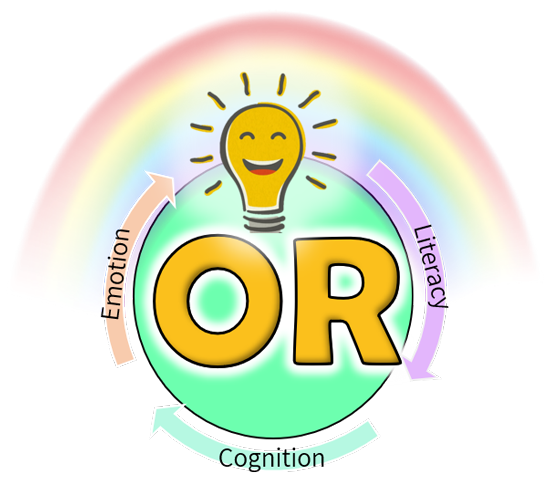
Second and Third Graders
Academic leadership:
Prof. Tami Katzir, Dr. Orly Lipka, and Dr. Shelley Shaul.
Scientific coordinators:
Shahar Dotan and Adi Bufman.
Pedagogical developers:
Shahar Dotan, Adi Bufman and Michal Sadan.

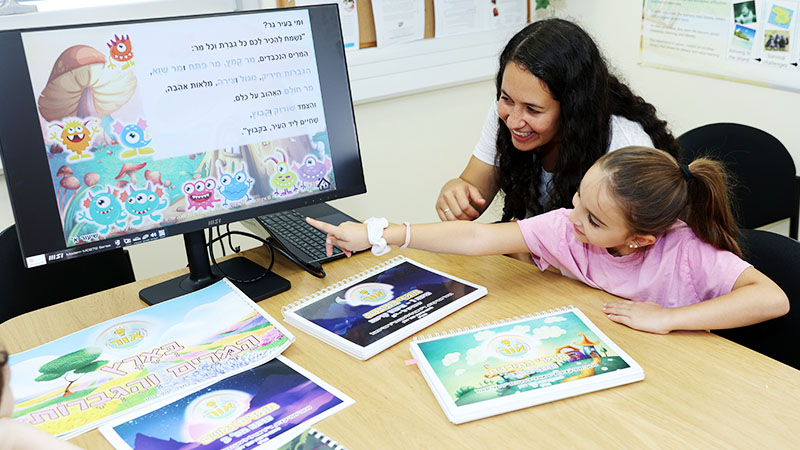
OR begins by placing students in a magical fictional land with characters who teach linguistic, self-regulation, and cognitive strategies. By embarking on a journey across this world, the children learn cognitive and emotional vocabulary, fluency, and comprehension.
By reading short stories and a book, the children learn to answer both simple and complex questions about the characters, their emotions, and the storyline.
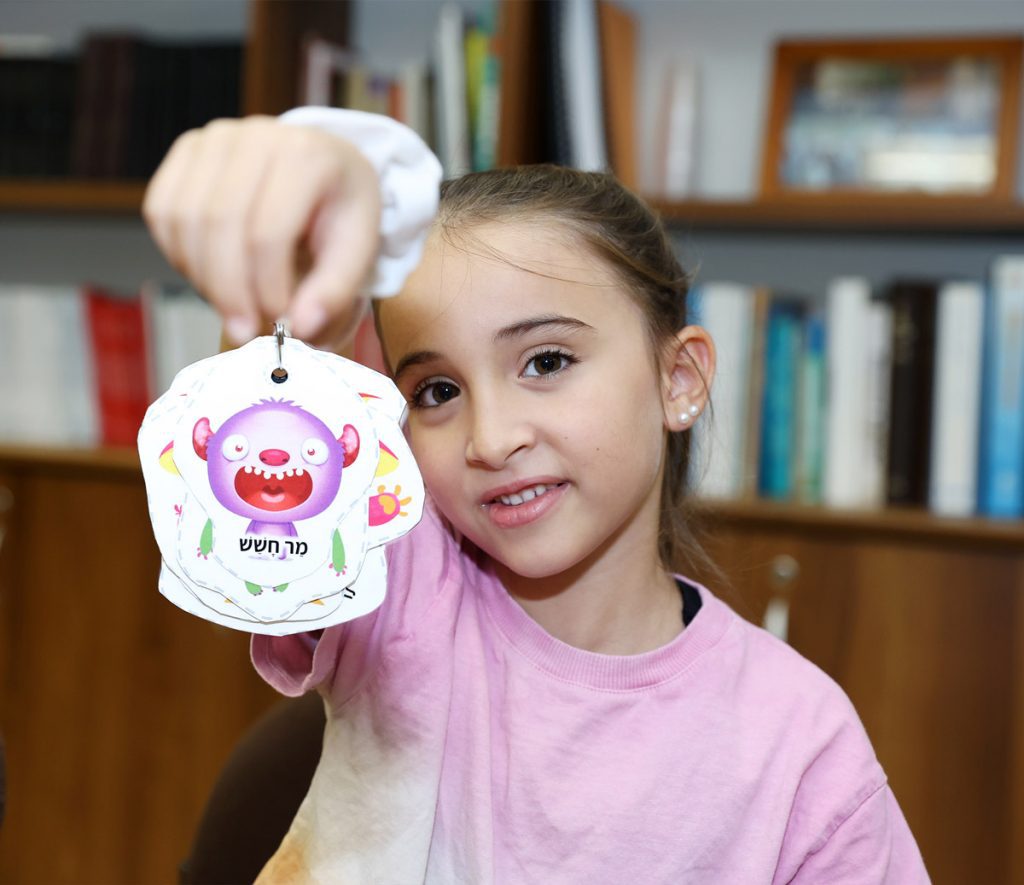
The essence of OR content lies in the carefully selected set of emotion and cognitive core words chosen for their ability to teach semantic concepts, morphological complexity, and self-expression. Lessons follow a consistent sequence that facilitates the consolidation of new knowledge and retrieval during reading and writing.

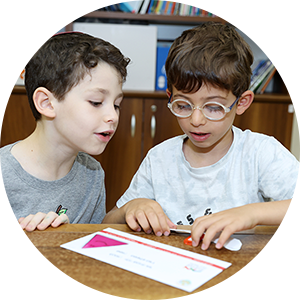
A key theoretical and clinical issue in the OR project was the early identification of young children at risk of developing later academic difficulties. This issue is critical for early prevention practices.
The OR project dealt examined and validated the reliability of tools for screening and detecting struggling readers in Grade 2 and assessed their ability to characterize struggling readers over time. The findings of the study point to two screening tools that meet the criteria of excellent screening measures: reading fluency and comprehension fluency. These screening tools were found to be effective, to have good validity and reliability, and to be cheap and quickly delivered.
The study found that these screening tools allow for identifying struggling readers and predicting gaps between struggling readers and typically developing readers in various literacy, cognitive, and emotional abilities. Additionally, these screening tools enable predicting gaps in reading comprehension between groups of readers, characterized on the basis of these screening measures.
Thus, to achieve quick screening, these two measurements are highly recommended; in fact, today they are used throughout Israel as the primary screening tool by the Ministry of Education.
Read more: Screening,
identifying, and characterizing struggling readers in second grade: The promise of fluency measures.
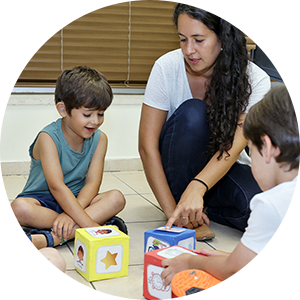
Our findings from the OR project are highly significant for prevention and remediation of reading difficulties. First, we found that the professional development program we offered the teachers as part of the intervention study was highly effective in terms of increasing professional literacy knowledge compared with the controls.
Second, we found that the predictors of response to intervention in our large sample of participants were teacher efficacy, number of hours of intervention, and classroom effects.
These findings at the child, teacher, and classroom levels are very important for future long-term remediation planning at the state level. In addition, we found that achievement gaps between children from families of low and high SES widen over time.
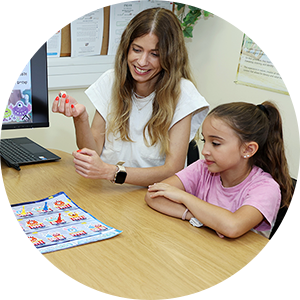
Teachers’ professional development is crucial in working with the RTI model, which aims to provide an optimal response for struggling readers. The findings of the OR study indicate a significant change in teachers’ perceptions of literacy knowledge:
after undergoing the professional development program, they reported having more knowledge than they had at the beginning of the program.
The teachers also reported a significantly higher sense of literacy self-efficacy after completing the professional development program compared to how they felt at the beginning of the program. These findings reinforce the related literature and indicate that if the goal of professional development is to change one’s classroom practice, it is important to develop different areas of knowledge alongside developing the teachers’ sense of competence and providing them with practical tools and materials that will allow them to implement the knowledge on their students. The training enabled the creation of a community of teachers and colleagues who had fertile ground for discussion, support, and consultation.
Furthermore, our findings constitute a valuable resource for educators, policymakers, and educational institutions by offering evidence-based insights into effective teaching strategies and practices.
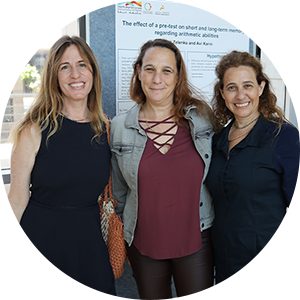
Insights derived from the OR project are also focused on the implementation of reforms in educational systems. In order to implement large-scale reform, deep and genuine partnerships between the academy and the educational field must be built and nurtured.
It has been found that key people, such as students in advanced research studies who are at the intersection of research and the educational field, literacy experts who implement the programs in schools, and members of the district headquarters, are important players in promoting fruitful and mutually beneficial partnerships. In addition, they are agents of change in the educational field. The implementation of research-based projects, such as “OR – Green Light for Reading,” can ensure an economic return on funding research of this type in the short term to promote student participation in the program. Furthermore, such assimilation supports the delivery of research knowledge to teachers and language instructors in the educational field, which will ensure that the knowledge remains within the school system. The findings of this extensive study indicate that professional development at the municipal level leads to improving the knowledge of teachers as well as supporting struggling students. These findings support an Israeli model of reform based on research and pedagogical tools that promotes truly beneficial partnerships between the academy and the educational field.
Furthermore, our findings serve as a valuable resource for educators, policymakers, and educational institutions, offering evidence-based insights into effective teaching strategies and practices.
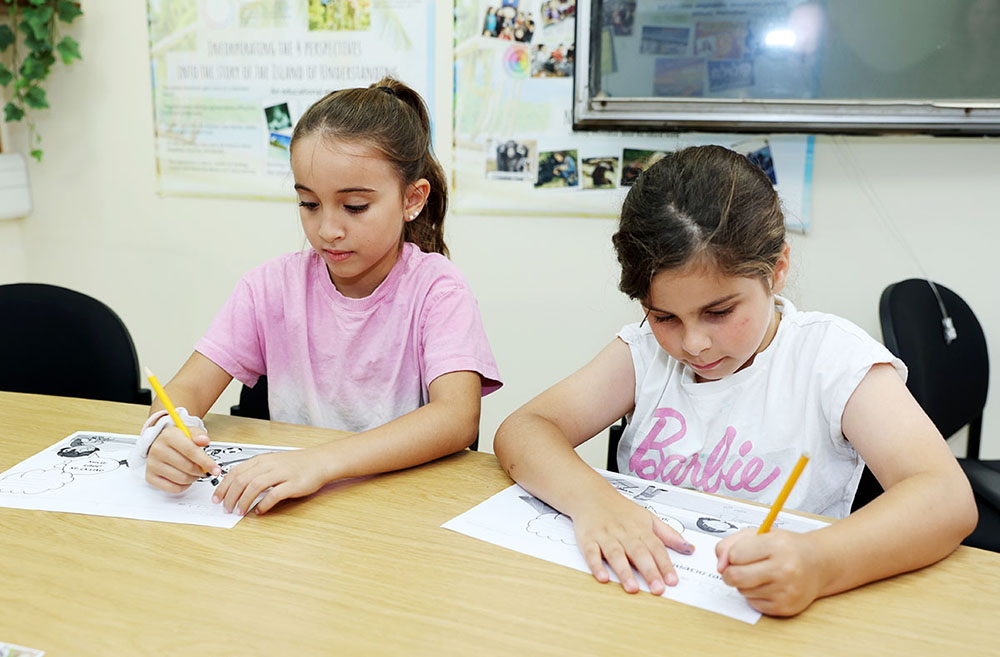
The OR project scientific report (In Hebrew)